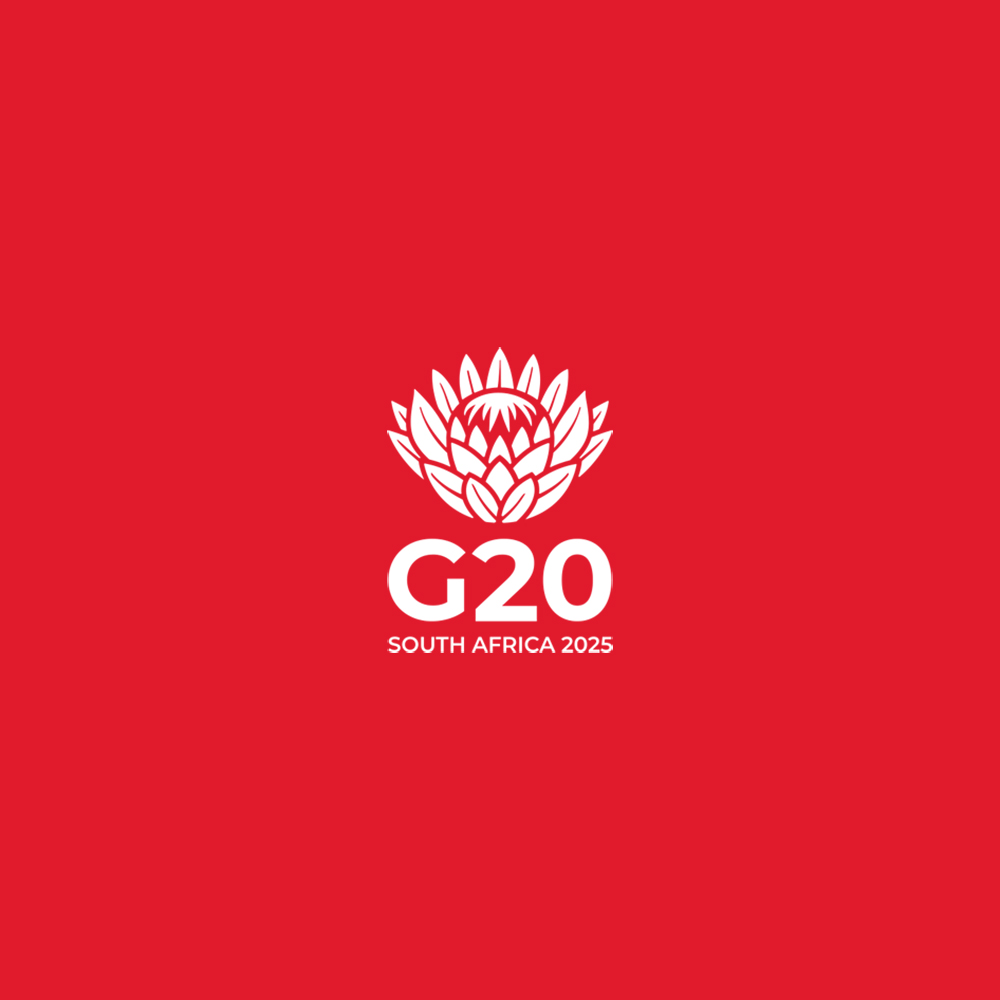The G20 is made up of 13 Engagement Groups
The G20 is made up of 13 Engagement Groups
South Africa fully supports the approach of strengthening partnerships and expanding dialogue with a wide range of actors; including States, international organisations and civil society; to collectively shape the G20’s approach to issues requiring international cooperation.
The experience, networks, research capacity and grassroots level knowledge of the G20 engagement groups will continue to greatly enrich the G20’s collective discussions and policy decisions.
The participation of non-governmental stakeholders reflects the overall commitment of South Africa to work towards a broader and more inclusive Presidency, which is also reflected in our overall theme and deliverables during this year.
Taking on board different perspectives, including those which may not be ideologically aligned to ours, is especially important for South Africa, as it will confer greater legitimacy to the G20 as an organisation and to the outcomes of the Leaders’ Summit in 2025.
Dialogues with civil society and other non-government institutions will be conducted by engagement groups such as the Business20 (B20), Civil20 (C20), Labour20 (L20), Parliament20 (P20), Science20 (S20), Start-up20 (SU20), Supreme Audit Institutions20 (SAI20), Think-tank20 (T20), Urban20 (U20), Women20 (W20) and Youth20 (Y20), the Oceans20 (O20), as well as the Judiciary20 (J20), a new engagement group created under the Brazilian Presidency.
South Africa also intends to create a new engagement group, the Township20 (TS20), to highlight the creative, cultural, financial and innovative capacities of South Africa’s Township economies.
G20 engagement groups are responsible for defining their positions on the G20’s agenda in independent dialogue processes. Through extensive consultations, the engagement groups are expected to make recommendations which will be presented to the Leaders’ Summit through the Sherpa Track process. South Africa will also facilitate an interaction between the Sherpas and the engagement groups prior to the Leaders’ Summit in November 2025.
Following the approach of the Brazilian Presidency, a G20 Social Forum, which will precede the Leaders’ Summit in November 2025, is expected to bring together representatives of the existing engagement groups and other segments of civil society that may offer meaningful contributions to the G20.
These groups have the fundamental role of offering a solid structure for channelling the demands and aspirations of the societies of the G20 countries to their leaders, exerting influence on the grouping’s decisions.
These groups have the fundamental role of offering a solid structure for channelling the demands and aspirations of the societies of the G20 countries to their leaders, exerting influence on the grouping’s decisions.
BUSINESS (B20)
The Business 20 (B20) connects the business community with G20 governments. The group includes around...
Read MoreCIVIL SOCIETY (C20)
The C20 aims to ensure that world leaders pay attention to the recommendations and demands...
Read MoreINNOVATION, ENTREPRENEURSHIP, COLLABORATION (STARTUP 20)
This Engagement Group establishes an open dialog between the various stakeholders in the startup and...
Read MoreLABOUR (L20)
The L20 represents workers’ interests at G20 level. It brings together trade union representatives from...
Read MoreOCEAN (O20)
Debuting under the Brazilian presidency of the G20 in 2024, Oceans 20 comes as a...
Read MorePARLIAMENT (P20)
Created in 2010, the Parliament (P20) group is led by the presidents of the G20...
Read MoreSCIENCE (S20)
Science20 (S20) is the G20’s science and technology engagement group. Formed by the national science...
Read MoreSUPREME AUDIT INSTITUTIONS (SAI20)
The Supreme Audit Institutions (SAI20) play a crucial role in strengthening cooperation among the Supreme...
Read MoreSUPREME COURTS AND CONSTITUTIONAL COURTS (J20)
The J20 exchanges ideas and initiatives concerning contemporary legal topics to establish a global forum...
Read MoreTHINK TANKS (T20)
The Think Tanks (T20) produces, discusses, consolidates and presents ideas on how to face current...
Read MoreURBAN (U20)
The Urban 20 (U20) is a city diplomacy initiative which brings together cities from the...
Read MoreWOMEN (W20)
The W20 is one of the G20’s engagement groups comprised of women from academia, entrepreneurship...
Read MoreYOUTH (Y20)
Y20 enables dialogue between young people from G20 member countries. As future leaders of their...
Read More






